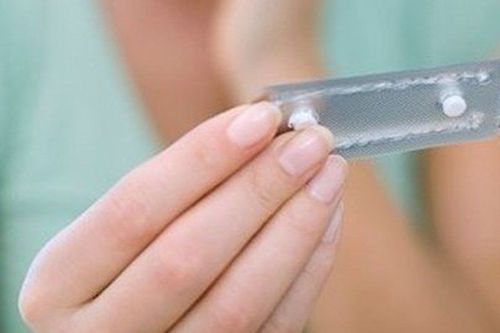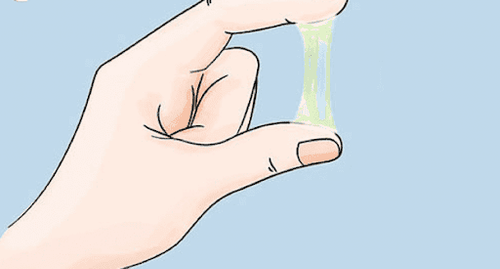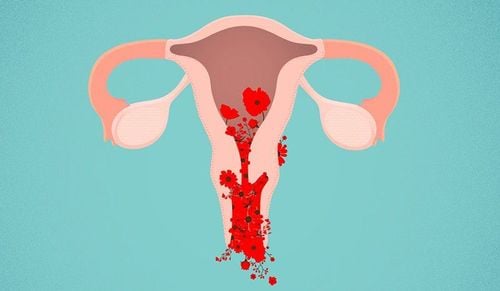Post-Abortion Care and Precautions
Article consulted by MSc, Dr. Tran Lam Khoa, Department of Obstetrics and Gynecology, Vinmec Central Park International Hospital.
After undergoing an abortion procedure, patients may experience mild pain in the initial days and vaginal bleeding resembling menstruation for 3–7 days. It is important to monitor for worsening abdominal pain or abnormal bleeding.
1. Post-Abortion Care
1.1 Avoid sexual intercourse for at least one month
The foremost and essential guideline is to abstain from sexual activity for at least one month. This helps prevent unintended pregnancies and avoids unnecessary damage to the cervix.
The abortion procedure can disrupt hormonal balance, alter menstrual cycles, and negatively impact reproductive health. Hormonal imbalances increase the risk of bacterial infections if hygiene is not maintained, potentially leading to inflammation, infection, or bleeding.
1.2 Avoid heavy physical activity
Refrain from strenuous physical activities, maintain adequate rest, and adopt a positive mindset to facilitate faster recovery.
1.3 Pay attention to your diet
You need to ensure adequate nutrition through your diet, and supplement many vitamins and nutrients through food, vegetables, and fruits.
1.4 Maintain proper personal hygiene
Clean the genital area according to the doctor's instructions, do not use any cleaning solution other than the doctor's instructions. Have regular check-ups according to the prescribed time.
- Refrain from vaginal douching or inserting anything into the vagina.
- Avoid harsh chemical cleaning agents.
- Always clean the genital area from front to back to prevent infections.
Trắc nghiệm: Bạn có hiểu đúng về dấu hiệu mang thai sớm?
Các dấu hiệu mang thai sớm không phải chỉ mỗi trễ kinh mà còn có rất nhiều dấu hiệu khác như xuất huyết âm đạo, ngực căng tức,… Điểm xem bạn biết được bao nhiêu dấu hiệu mang thai sớm thông qua bài trắc nghiệm này nhé!
2. What should you avoid eating after an abortion?
- Limit snacks and fried foods: snacks, fast food, and fried foods with a lot of oil such as french fries,... are favorite foods of many people that seem harmless but they are foods that contain very high calories and fat.
- Stimulant drinks such as alcohol, beer, coffee, carbonated drinks,...

3. What should I eat after an abortion?
3.1 Supplement protein from nutrient-rich foods
Abortion causes the body to lose blood, and bleeding can last up to a week afterward. Protein is an essential nutrient for blood regeneration. Therefore, you should increase foods rich in protein in your meals such as meat (especially beef), animal liver, beans, eggs, and milk.
3.2 Foods rich in vitamins
Supplement with basic vitamins such as vitamin C, B1, B2, and vitamin E. Fresh fruits and green vegetables such as spinach, amaranth, tomatoes, bean sprouts, pumpkin, apples, and grapes contain extremely rich vitamin content, in addition to iron and phosphorus to help aid in blood replenishment. If you feel bored and have difficulty eating, you can replace it by drinking fruit juice or fruit smoothies.
3.3 Folic acid is essential for women who have just had an abortion.
Folic acid is a B vitamin that helps regenerate red blood cells. Folic acid can be obtained from easily available foods such as animal liver, green vegetables, bread, corn, peas, and mushrooms.
3.4 Calcium supplements to reduce pain and fatigue
Lack of calcium in the body causes insomnia, lethargy, and aching limbs. Therefore, calcium supplementation is extremely necessary for rapid health recovery. Don't forget to supplement calcium from seafood, almonds, dark green vegetables, kiwi, mushrooms, etc.
3.5 Easily digestible foods
To facilitate the absorption of nutrients and avoid intestinal diseases, experts advise women to eat easily digestible foods such as sweet potatoes, bananas, avocados, zucchini, and chicken.
In addition to nutrient-rich foods, ensure adequate hydration by drinking at least 2 liters of water daily to boost metabolism. Milk or fruit juices can also be included. Even if your body is tired and does not want to eat, you must not skip meals. You can divide your meals into smaller portions to limit loss of appetite.
4. What are the complications after abortion?
Throughout the procedure, metal instruments are repeatedly inserted and removed, which may cause uterine trauma or even perforation of the cervix or uterus. Some major complications that may occur include:
- Uterine perforation.
- Hemorrhage.
- Cervical tears during the procedure.
- Uterine adhesions, often manifesting as reduced menstrual flow or absence of menstruation.
- Retained placental tissue, indicated by prolonged bleeding and a higher risk of infection.
- Incomplete abortion, where parts of the fetus or its appendages remain and continue to develop.
- Infection of the reproductive organs or uterus due to non-sterile procedure practices or poor post-procedure hygiene.
- Menstrual irregularities post-abortion, such as prolonged bleeding.
- Blocked fallopian tubes caused by inflammation, which can impact future fertility.
5. What signs require immediate medical examination?
You should return to the medical facility for a re-examination immediately if you have one of the following signs: Severe pain in the lower abdomen, muscle pain, and abdominal pain when pressed. Fever or chills. Heavy bleeding (more than normal menstrual bleeding), lasting more than 10 days. Vaginal discharge with a foul odor,...

6. What check-ups are needed after an abortion?
At the follow-up visit after the abortion, the patient will have a gynecological examination so that the doctor can check whether the uterus has returned to its normal state, signs of genital tract infections, and persistent vaginal bleeding. Based on the findings, the doctor may prescribe appropriate treatment (if necessary).
Failing to attend follow-up appointments may result in undetected abnormalities or complications, such as infections or uterine adhesions, which could adversely affect future fertility.
To arrange an appointment, please call HOTLINE or make your reservation directly HERE. You may also download the MyVinmec app to schedule appointments faster and manage your reservations more conveniently.













